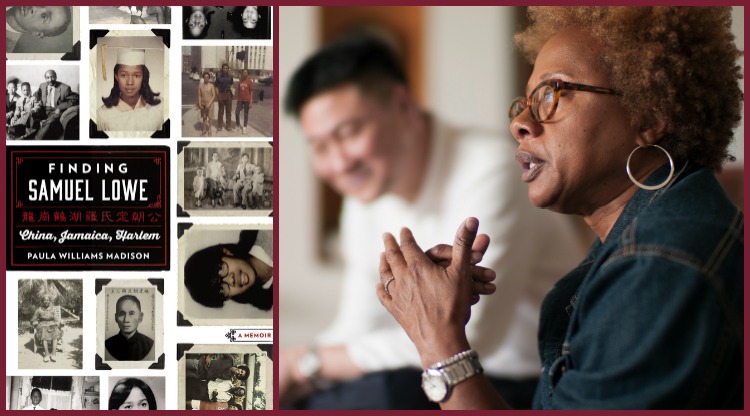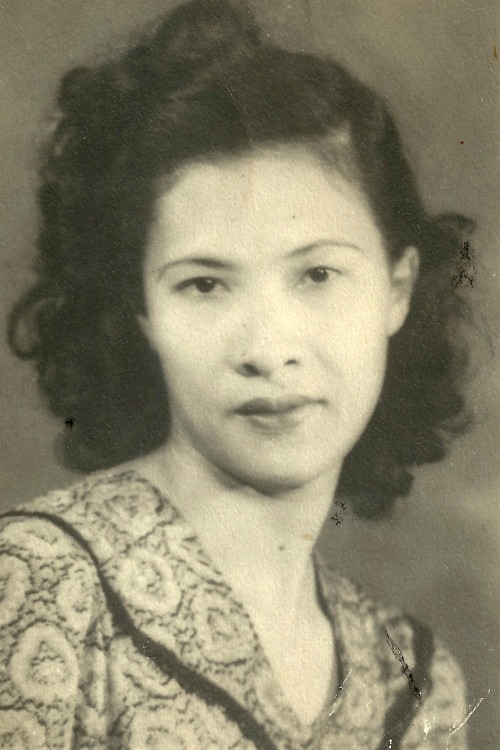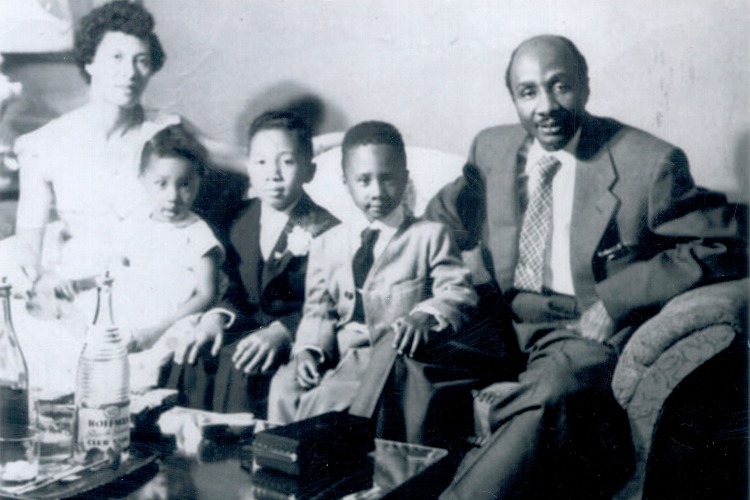“Baby,” he asked, “do you know you’re Black?”
Those are some of the first sentences in Paula Williams Madison’s memoir Finding Samuel Lowe: China, Jamaica, Harlem (Amistad, 2014). Perhaps not the expected opening lines to a memoir about a woman’s search for her long-lost Chinese relatives. And that’s what makes it so interesting.
I saw Paula Madison speak at last year’s V3 Conference. Seeing a ostensibly black woman onstage and knowing that her career accomplishments most recently included serving as VP of Diversity at NBC, I assumed Madison was there in a purely professional capacity. Well, we all know what happens when one assumes…
So when I heard about the new memoir Finding Samuel Lowe (Amistad, 2014) and found out it was written by Madison, who is black and Asian, I had to read it. Madison had always known that her light-skinned, melancholy mother was the daughter of a Hakka Chinese merchant and black Jamaican woman, but never knew any of her extended relatives or even much about her family history.
But as a 60-year-old woman at the peak of career, traveling to Beijing as an NBC executive, she caught sight of a woman who reminded her of her mother, who had passed away two years earlier.
“…at that moment in the streets of Beijing, seeing my mother’s face, I realized that in death she might lead me as she never could during her life. Perhaps here in China, I would unravel the mystery of our identity that resided in our DNA…”
The book not only traces Madison’s childhood in Harlem and her mother’s origins in Kingston, Jamaica, but doesn’t turn away from examining the racial and social tensions in the post-colonial Caribbean,United States, and in Asia. As they did in many parts of the world, Chinese merchants settled in Jamaica, establishing general mercantiles known as “Chiney shops”. Since the sojourners were almost exclusively single men, they sometimes had relationships and started families with local woman. In Samuel Lowe’s case, two. Madison’s mother, Nell Vera Lowe, was one of those children. But at age three, her mother left Lowe when he revealed that he was going to legally marry a proper Chinese bride.
Madison writes that her grandmother Albertha had been ostracized and “ridiculed for ‘laying down’ with a Chineyman”. By the time the teenaged Nell tried to reconnect with her father, he had already sailed back to China with his new family and his other mixed-race daughter by a different Jamaican mistress. I found it interesting that although Nell was half-black, she wasn’t able to emigrate to the United States until the Chinese Exclusion Act was repealed in 1943. But as Madison writes, even in Harlem, Nell attracted stares, not just for her height and beauty but for her Asian features. Even with her distinctive appearance, Nell knew little of her Chinese heritage except for a few household phrases in the Hakka dialect. Later, Madison worries that she and her dark-skinned cousins would be rejected by the Lowes in China.
As with any memoir, Madison also recounts her childhood and adolescence, including a rocky family life and her burgeoning identity in the Black Power movement of the late 1960s. But the action really begins in 2012, after Madison has retired from NBC. In her newfound free time, she decides to do some Internet searching for Samuel Lowe, which leads to phone calls, which leads her to a Hakka convention in Toronto. Miraculously, she finds manages not only to find her long-lost Lowe relatives (including her mother’s 94-year-old half-sister who was also born of a Jamaican mother) and orchestrates a family reunion involving dozens of Samuel Lowe’s black American grandchildren and great-grandchildren. Also interesting are Madison’s observations on Chinese traditions, since she has grown up largely outside the culture, yet clearly has an almost visceral hunger to be part of it.
To me, the most interesting part about Finding Samuel Lowe is not in the personal details, but in how those details illustrate the story of the many other Afro-Asian descendants of Chinese traders.
What is not told very often is why there are hundreds of thousands of Afro-Caribbean-Chinese throughout North, Central, and South America. Many of us never knew our grandfathers, because many of them never returned to China, and while they were fathering children with indigenous women, they never talked much about their ancestral villages.
In the end, the journey to China is a two-way street, both a pilgrimage to the motherland and also a quest for the inclusion of the forgotten mixed-race offspring of Chinese adventurers.
Finding Samuel Lowe: China, Jamaica, Harlem
(Amazon affiliate link)
Also, check out the trailer for the Finding Samuel Lowe film.




